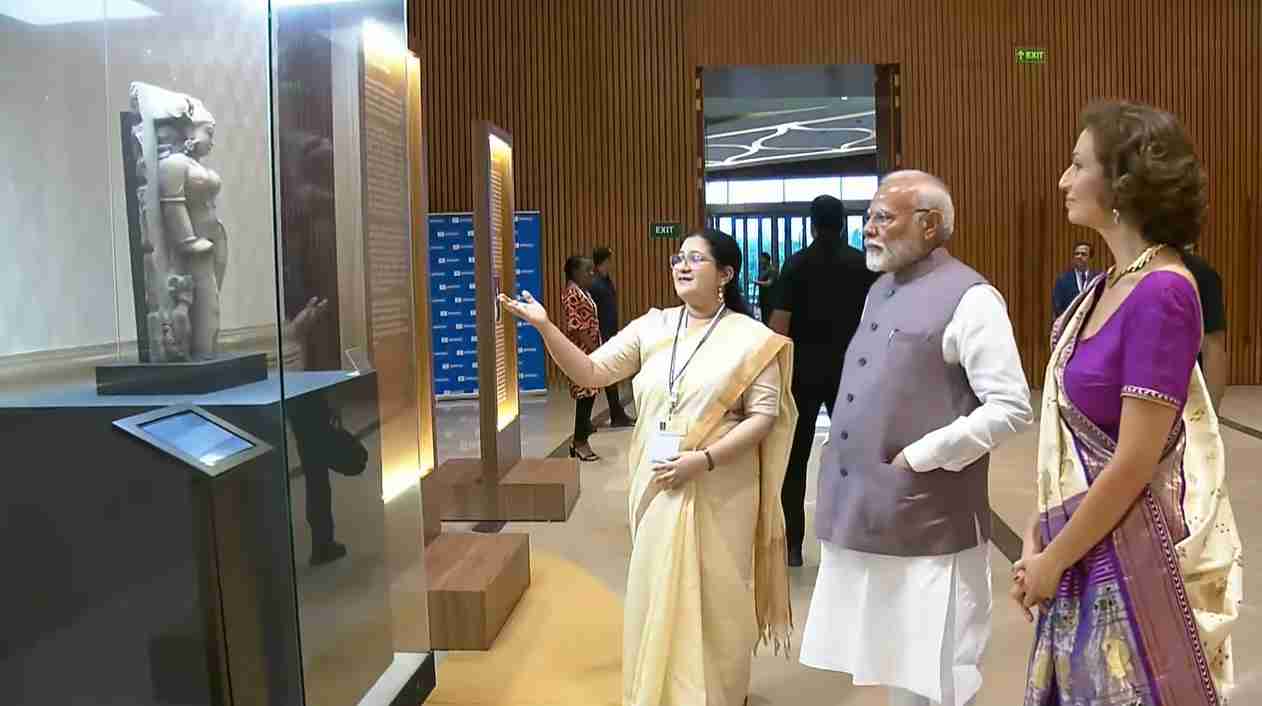India has embarked on a momentous journey as it hosts the 46th Session of the World Heritage Committee at Bharat Mandapam in New Delhi. This milestone event marks the first time India has undertaken the responsibility of hosting the global gathering, which plays a pivotal role in the conservation and recognition of cultural and natural heritage sites worldwide.
The World Heritage Committee, comprising representatives from UNESCO member states, convenes annually to deliberate on significant issues concerning World Heritage. Central to this year’s agenda are discussions on the nomination of new sites for inclusion on the prestigious World Heritage List, as well as assessments of the conservation status of existing World Heritage properties.
Prime Minister Narendra Modi, in his inaugural address, underscored India’s diverse cultural landscape and reiterated the nation’s commitment to preserving its rich heritage. With 40 UNESCO World Heritage Sites, India stands as a testament to millennia of history and cultural diversity, from the iconic Taj Mahal to the ancient ruins of Hampi.
“This session of the World Heritage Committee is an opportunity for India to showcase its cultural wealth and contribute to global efforts in heritage conservation,” Prime Minister Modi remarked, highlighting the significance of Bharat Mandapam as the venue for international deliberations on heritage preservation.
Key discussions during the session will also focus on the allocation and utilization of World Heritage Funds for international assistance, addressing challenges such as climate change impacts on heritage sites, and fostering sustainable tourism practices that respect cultural integrity.
The 46th Session of the World Heritage Committee represents a crucial platform for countries to collaborate and exchange best practices in heritage conservation. Delegates will engage in intensive deliberations aimed at shaping policies and strategies that ensure the safeguarding of cultural and natural treasures for future generations.
As India assumes its role as host, the event not only reinforces the country’s growing influence in global cultural diplomacy but also underscores its commitment to upholding the principles of UNESCO’s World Heritage Convention. The outcomes of the session are expected to have far-reaching implications for the preservation and promotion of World Heritage Sites worldwide.
Over the next ten days, participants will engage in rigorous debates and presentations, seeking consensus on important decisions that will impact the future trajectory of heritage conservation efforts globally. The session promises to be a pivotal moment in advancing international cooperation towards the shared goal of safeguarding humanity’s most cherished legacies.



